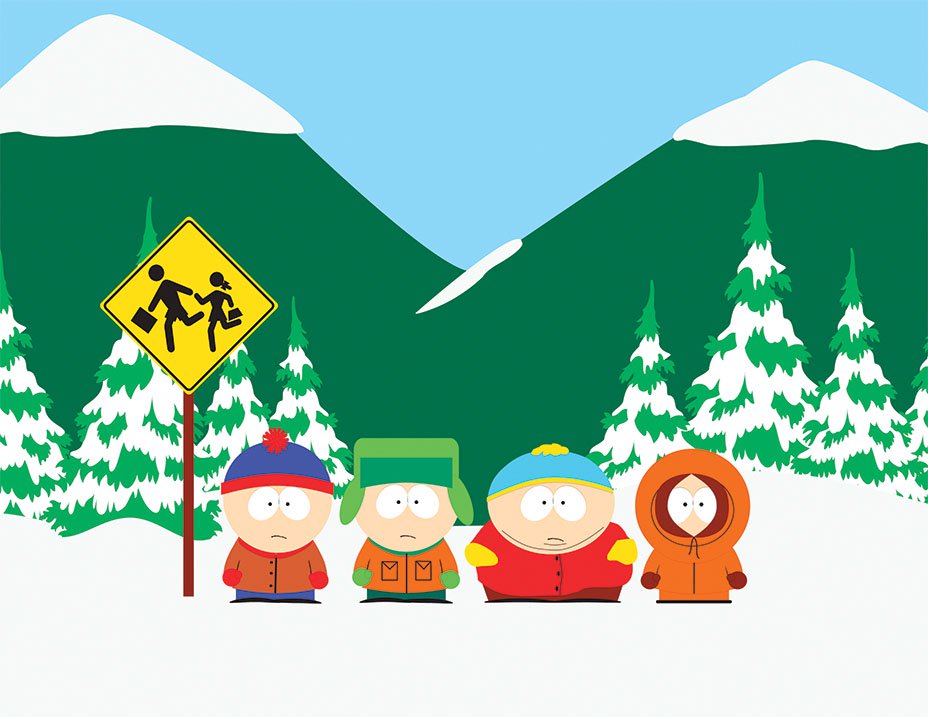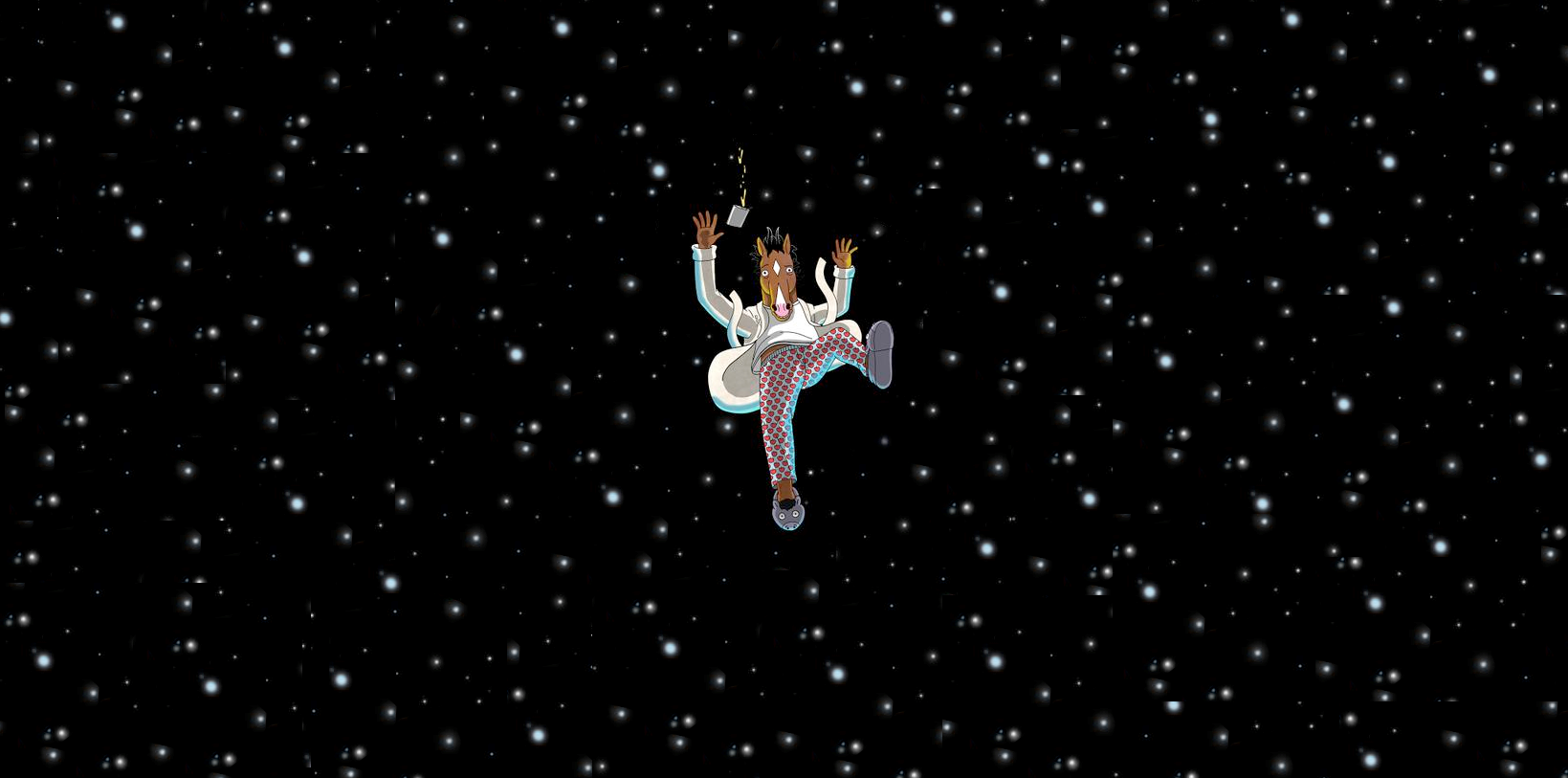As the summer of "Game of Thrones" and "Twin Peaks" came to an end, I too felt ready to move on. I was looking for a show with lower stakes and less melodrama.
Much to my own shame, I did not expect the drunken escapades of an anthropomorphized horse/washed up sitcom star voiced by Will Arnett to get so existential. I was looking for nothing more than an animated half-hour comedy, but through "BoJack Horseman" found a thoughtful, if not heartrending, examination of mental health and one's various relationships.
It’s a series ripe and deserving of its own deep dives, for which I’d recommend the work of Alison Herman and Film Crit Hulk. I wouldn’t be doing the shows justice to shoehorn a complete analysis of it into this article.
Even as someone who already thought animation was an under-appreciated form of storytelling,
Precursors and Eventual Recognition
Animated shows have demonstrated an ability (and willingness) to add layers of political or social commentary for longer than we might think.
“You can go back to the sixties and Rocky & Bullwinkle were addressing political issues at the time,” explained Professor and Program Chair of Animation Brian Larson. “They weren’t exactly difficult subjects to tackle, but it was new for cartoons to address them. That was really unique at the time.”
Because cartoons have always been known to appeal to kids, children’s shows have often tried to make the most of their opportunity.
“‘Doug' [a Nickelodeon series from the 90s] tackled some really complex issues of adolescence and growing up and bullying and started to venture into those waters,” Larson said, noting the initiative taken by the series.
“‘Doug’ tackled some really complex issues of adolescence and growing up and bullying.”
Despite demonstrating the capability to be more than only entertaining, animation was still seen as being predominately for children. Even prominent animated series aimed at mature audiences 10–20 years ago (“Family Guy”) rarely tried to layer in much nuance.
“It just wasn’t viewed as having the capacity to have any depth to it,” said Larson. “When viewed by [TV] executives for the longest time it was ‘no it’s for kids,’ but now the creators are creating it and running shows they’re like ‘it doesn’t have to be.’”
“When viewed by [TV] executives for the longest time it was ‘no it’s for kids,’ but now the creators are creating it and running shows they’re like ‘it doesn’t have to be.’”
We now have a generation of creators and viewers who grew up being exposed to a plethora of animation. We’re a generation that’s used to watching and absorbing information through animation, largely due to its sheer prevalence.
“It’s in a lot more ads, it’s all over the web,” pointed out Larson. “It has been used in public service announcements for years (so they’re starting to see some returns on that).”

Modern audiences in the U.S. have also long been exposed to what animators abroad have been able to do. Those who grew up in the 90s saw films like "Ghost in the Shell," "Akira" and "Princess Mononoke" come out of Japan, and those of the early 2000s got the likes of "Spirited Away" — each of which demonstrated that people would welcome animation that sought to be thematically ambitious.
“It’s been proven by properties from other countries that there is an audience for it,” Larson said. We are a viewing populace that’s been exposed to increasingly more uses and contexts for animation. Like Larson expressed, having animated stories more overtly address social issues very much seemed like a logical next step.
“It’s been proven by properties from other countries that there is an audience for it.”
Exemplified by shows like "BoJack Horseman," complex themes don’t just have to be bundled into a kid’s animation to be addressed; we can make cartoons more deliberately aimed at adults. As Larson put it, people finally began asking themselves, "Why not?"
Portraying Complexity and Connecting With People
“We’re for some reason — a reason I’m not entirely sure of — we’re willing to accept the complexity of a topic when delivered from a symbol of a human (as opposed to a specific human),” conveyed Larson. “It softens it, it gives us an avenue into it; it allows me to distance myself if I want to; if I start to feel uncomfortable; I can push it back in a way I can’t with humans.”
“I won’t view him as ‘well that’s only the opinion of a horse,’” noted Larson. “I’ll find my way in and see where that attaches to me.”
Anthropomorphism can introduce an extra element to that dynamic, according to Larson. For example, since no viewer of "BoJack Horseman" is a horse, we look more for the ways we relate to such characters on a human level.
“I won’t view him as ‘well that’s only the opinion of a horse,’” said Larson. “I’ll find my way in and see where that attaches to me.”
Using an anthropomorphized animated character, as opposed to a real person in a live action setting, can help the message of a piece of fiction resonate more widely too.
“If I’m being told a message by Tom Cruise, then it’s Tom Cruise — a white guy — telling me a message,” said Larson. “But if it’s a cartoon raccoon or something, that can apply to a broader audience and can last over years.”
While "BoJack Horseman" is far from the first piece of animation to try and do more than just be crude or humorous, it is emblematic of how prevalent and accepted it is to tell more complex stories in such a form nowadays.

Stagnant Satire
Older audiences clearly have an increasing appetite for animated comedies to address social concerns skillfully. This holds especially true when it comes to addressing political issues.
The stakes just feel so much higher in 2017. Every week it seems like something reprehensible or concerning on an existential level transpires. Now more than ever there is a need for skilled satirists to take aim at corrupt power structures and toxic societal beliefs. There are more than enough wrongs to tackle and spotlight through fiction — and animation is well-suited for the challenge.
You would think "South Park," for one, could be that animated show. No other show of its kind is made literally as the week’s news unfolds. Their unique ability to be timely, combined with their wit and sense of comedic timing, could really make noise in today’s political climate.
Yet as of late, "South Park" has clung to a reality that hardly seems true anymore: that every strongly-held belief is equally absurd and unreasonable. Truly caring or acting as if anything has real meaning is not their schtick. One of the show’s creators, Trey Parker, even admitted to the LA Times that they plan to avoid Trump this year because it got “boring” last season. I wish we could do that.
"'South Park's" been around for so long, and was made famous because of that type of mocking and humor,” commented Larson. “For them to start addressing lessons or morals, or those bigger issues, it just doesn’t fit that particular show and their style of writing.”
“For them to start addressing lessons or morals, or those bigger issues, it just doesn’t fit that particular show and their style of writing.”
In last year’s season 20 finale, “South Park” actually demonstrated they were self-aware of
It’s not hard to understand why and how the show would see themselves as almost an "impartial agent of chaos" — one whose role is to deride and parody literally everything. For many years, that attitude allowed them the maneuverability to take everyone and everything down a peg when needed.
Yet, there is an increasingly apparent gap between where “South Park” is taking aim and reality. With the stakes so high in 2017, choosing to not "punch upward" and just keep "punching in every direction" makes much of its humor ring hollow.
In its season 21 premiere, the show channeled the imagery of the Aug. 11 “Unite the Right” rally in Charlottesville, Virginia — including torches, Confederate Flags and marchers yelling, “You will not replace us.” The show concocted a nonsensical narrative where those marching were only angry because they were blue collar workers being replaced by Amazon Echos and Google Homes — there was no mentioning of racial prejudice. It really is odd that of all the boundaries "South Park" is willing to push, explicitly calling out racism isn’t one of them. They clearly just wanted to be topical without addressing the explicit bigotry of the event or larger cultural conversations implied by those elements.
The ground seems ripe for a new animated satire to come along and really engage with today's issues. After all, there are already live-action shows like "Last Week Tonight with John Oliver" that use comedy as a means to open up discussions and speak frank truths about uncomfortable realities.








